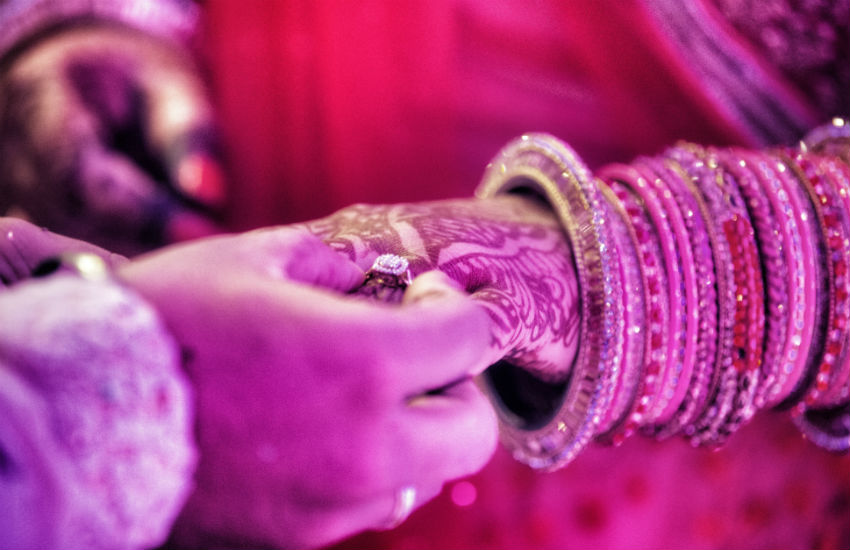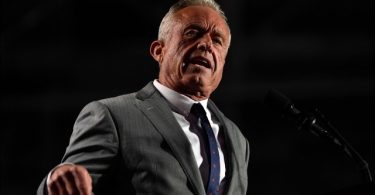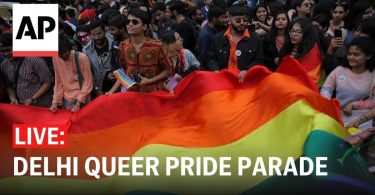I was born and brought up in London to Indian parents. Both Mum and Dad, with their respective families moved to the UK around the same time in the early 80s.
India is our ancestral home. It’s a country where gender and sexuality outside the straight and cis-gendered spectrum is widely considered an ‘abnormality’ or ‘insanity.’
The UK, on the other hand, is a true land of opportunity by comparison.
Growing up gay in an Indian family
While I was growing up, I would often come across words like ‘hijra’, which despite being translations for ‘eunuch,’ would be widely used to describe anyone who belonged to the LGBT spectrum. In terms of verbal abuse, often leading to violence, these words are the perfect counterparts of ‘faggot.’
Since my early childhood, I was taught that these people deserve no respect whatsoever. Hinduism has no actual reference to homosexuality or transsexuality as ‘sinful,’ but rather has direct mythological contexts to support the whole LGBT spectrum.
Yet, ironically, such facts have always been overlooked and the entire LGBT spectrum labeled as an ‘evil Western influence’ on Indian society.
Growing up, I understood these topics were not to be discussed.
Keeping secrets
Meet-ups with strangers online, at times sexual, but on most occasions for a coffee or lunch so that I could find someone to relate to, were to remain secrets.
I liked the touch of guys. I loved to be around them. And yet, I had a string of ‘girlfriends,’ because apparently, you are not man enough if you don’t have a girl.
I was lucky to be exposed to LGBT themes in contemporary literature, cinema, television or music throughout the early 90s and 00s. EastEnders, and its storyline with Simon Raymond and Tony Hills, had a big impact on me.
However any sign of LGBT themes on television and the TV channel would be changed hastily by my family.
Coming out to my dad
Towards the beginning of this millennium, however, things started changing a bit. I remember that I had PSE Week at school. I remember Dad asking me what I had learnt each day. And one night, I told him we learnt that some boys like boys and some girls like girls and that’s OK and normal.
I then told Dad that I liked boys. His reaction couldn’t have been better. He showed absolute acceptance. He gave me a hug. His words are etched and preserved in my memory.
‘I just want the best from you. You always have my blessings. To me it doesn’t matter who you are or who you love, you’re my little boy and you’ll be fine.’
He died a week later from a massive heart attack. He was aged 39 and I was 12.
Becoming the man of the house
I didn’t see much of my dad in my childhood. He was in and out of prison due to the violence and abuse he inflicted on my mum stemming from his alcohol addiction.
Neither did I have a great relationship with him. I always felt I had to be a ‘macho’ boy. I hated joining in football matches at the park between dad and my brother.
But the deep and spiritual relationship I had with my dad I will treasure. I would tell him everything that was making me sad. Like who’d said horrible things at school that day. Even if he was drunk.
But things couldn’t be normal and I couldn’t be who I wanted to be. After losing dad, it was the done thing in Indian households that the eldest son is the ‘man’ of the house.
Whilst Mum and my brother did their grieving, I remember nobody sympathising with me.
I remember being told by various aunties, uncles and well wishers that I shouldn’t party or visit friends. They said I am to provide for the family. I had to look after both my mum and brother. My life came to a standstill. So how could I be gay?
Dropping out of university and first boyfriend
I dropped out of college so that I could cram in more hours and feed the family. I didn’t go clubbing. My brother tagged along on the night I did have.
I then had a chance to go to uni. But my relationship with my brother and mum broke down at the prospect of me leaving the family. Their fear of independence and abandonment took hold.
My brother was going through his teens, and the possibility of me moving out just caused so much pain for my mum. Rather than let me fly the nest there was this hold that still grips me even today. They have a fear of losing me, the glue I am to the family. It was around this time I met my first boyfriend. We met on Gaydar in 2008.
We dated. I was 21 and he was 32. And he lived 130 miles from where I lived. How could this work? I knew one day I had to leave the home. So I decided to drop out of uni and concentrate on the Management Training Programme at work. I’ve always had a job since 16. Even whilst studying.
Coming out to my brother
During this time the relationship I had with my ex was a secret. I travelled almost every weekend to see him, the lure of a secret life and finally, some independence, intoxicating.
Unable to take the pressure of leading two lives, I came out to my brother. He didn’t respond well.
He suggested I break up and stay in the family home because that’s where my responsibilities were. Apparently. Of course, that was not an option and I left home. Happy that my brother knew where I was going to be living, but sad that I had to lie to my mum. And angry that I couldn’t seek her blessings.
I sacrificed my life at home to be with my now ex, my first boyfriend. Was it worth it? I don’t have regrets. Although the relationship has ended, and with it the friendship it brought, in those five years and also the subsequent years after, I have learned and accepted so much of myself.
Learning to love myself
To move on in my life, I have learned to love myself before I invite love into my life. And to accept myself and others for who they are.
In recent years, I found that people were fighting to legally have homosexuality decriminalized in India. I felt inspired. The next stage for me was coming out to friends. However, this came with challenges as I battled with the actions of my past.
A lot of people were unhappy with me moving away all those years ago, but once I came out, people understood my story.
Some people said, ‘You are doomed. Nobody is ever going to accept you.’ Some friends said, ‘I am so happy for you.’ But there remained a string of questions I had to answer time and again to justify my sexuality.
Deciding to come out to mum
Recently, I again met someone special. We started to create a world of our own: a small world where everything else was immaterial or oblivious. Things at home began getting intense – my mum started to question why I didn’t go out with girls and how I had just one ‘friend’ in the entire world.
Unable to take the pressure anymore, I came out to my mum, this time in a way that I hoped would help her understand. I started writing a letter a few years ago. In my head I had planned the whole event.
We would take a train to the spot where we scattered dad’s ashes all those years ago.
Mum was so happy at visiting this place. We’ve shared some moving personal moments here. It is our happy place. However, after she read the letter and her reaction, I couldn’t help feel numb about how I had tarnished this location.
At the same time, I felt happy; happy that the pressure of keeping a lid on my true identity has been extinguished. But it also feels somewhat selfish.
Despite knowing about his sexuality, the writer’s mother still wants him to marry a woman (Photo: Sourabh Virdi on Unsplash)
Mum still wants me to marry a woman
Mum has suggested that I get married to a Hindu girl so that ‘society will accept me.’
She also questioned my happiness. ‘For me to accept your happiness what about my happiness?’
This is something she brings up a lot. I believe this is connected to her past relationships and events in life that she’s not moved on from.
Through it all, I have faced each problem and started presenting my mum with facts and examples.
My coming out story cannot overlook its cultural context and background. It is unrealistic to say, ‘Mum, Dad, I’m gay,’ and expect them to deal with it in a cool way. My coming out experience has taught me that acceptance can never be one way, we also need to understand the fundamental problems that prevent our parents from accepting.
My coming out continues to challenge my mental stability. There are almost daily arguments. Mum won’t acknowledge my partner’s existence and constantly says, ‘What about my life? When am I going to be happy?’
I don’t want to pretend to be straight
I’ve been getting great support from the Naz and Matt Foundation. I would encourage anyone in a similar situation to check it out.
I’m clutching to the hope that, over time, mum will accept me. Our parents want the best of us. We love them. And at the end of the day, they love us, deep down.
And all of us want to spare each other of the possibility of humiliation and violence in a judgemental society. My coming out experience has been instrumental in setting up my goal for life: to accept and be accepted by a nation and culture where I don’t have to pretend to be straight or wear a ‘gay’ label.
I want to lead a simple life, built upon love. Why should that be so hard?
The writer wishes to remain anonymous
See also
Need support? LGBTI helplines for those in crisis or seeking advice







